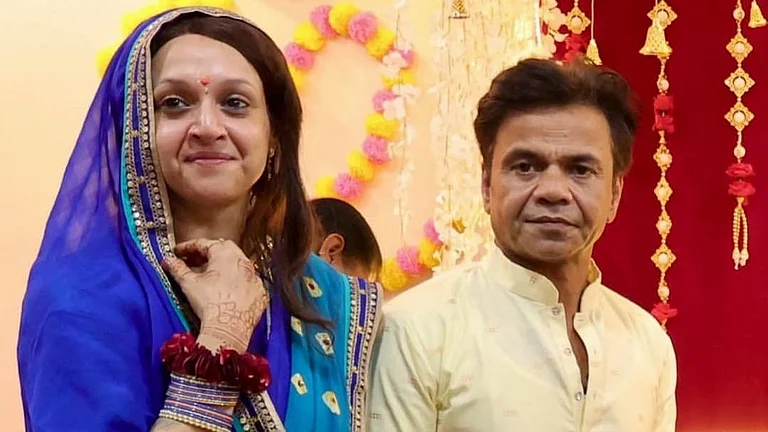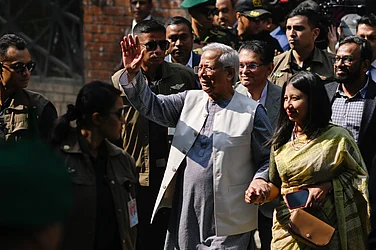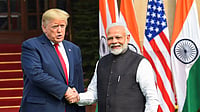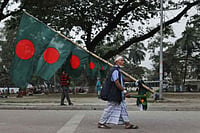Sri Lanka’s Defence Ministry has appealed to the public to assist it in managing the current economic crisis and unrest in the country with "utmost intelligence and patience" and also cancelled the leaves of all security personnel, following the declaration of a state of emergency in the country by embattled President Gotabya Rajapaksa.
In a special Cabinet meeting on Friday, President Rajapaksa declared a state of emergency with effect from Friday midnight. This is the second emergency declared in just over a month. Rajapaksa had declared an emergency on April 1 also after a mass protest opposite his private residence. He had revoked it earlier on April 5.
Sri Lanka’s Ministry of Defence on Saturday announced that due to the declaration of a state of emergency, the leave of security forces personnel is cancelled, the Daily Mirror newspaper reported.
All military personnel are to report to duty with immediate effect, said the Ministry of Defence.
In a separate statement, the ministry requested all citizens to "assist in managing the current economic and social crisis and unrest in the country with the utmost intelligence and patience."
"It must be stated that we all respect the democratic right of the people of Sri Lanka to peacefully express their agitations and protests within the democratic framework," the statement said, amidst weeks of protests demanding the resignation of the President and the government, blaming the powerful Rajapaksa clan for mishandling the island nation's economy, already hit by the pandemic.
"Nevertheless, especially the last few days, the struggle that has been going on as a peaceful struggle has been changed and the democratic rights of the people have been violated in an attempt to disrupt the normal life of the people in the country," the ministry said in a statement.
It is a fact that in general we are all in great distress due to the protests and hartals being carried out in various parts of the country in a manner that affects their daily lives," it added.
The ministry said there had been reports of protesters behaving in a "provocative and threatening manner" without any regard for the prevailing law and order in the country, disrupting the work of the Police and Security Forces who are committed to maintain law and order.
"Due to this reason, the majority of the law-abiding citizens of the country find it very difficult to maintain the essential services required to carry out their daily lives," it said.
"Considering the status quo, the State of Emergency in the Democratic Socialist Republic of Sri Lanka has been declared from midnight on May 6, 2022 in accordance with Constitutional powers vested in His Excellency the President of the country...to maintain public peace, securing the lives of the people and ensuring social stability and to establish the constitutional institutions established in accordance with the provisions of the Constitution," it said.
Sri Lanka is currently in the throes of unprecedented economic turmoil since its independence from Britain in 1948. The crisis is caused in part by a lack of foreign currency, which has meant that the country cannot afford to pay for imports of staple foods and fuel, leading to acute shortages and very high prices.
Thousands of demonstrators have hit the streets across Sri Lanka since April 9, as the government ran out of money for vital imports; prices of essential commodities have skyrocketed and there are acute shortages in fuel, medicines and electricity supply.
Despite mounting pressure, President Gotabaya Rajapaksa and his elder brother and Prime Minister Mahinda Rajapaksa have refused to quit office.
Sri Lanka needs at least USD 4 billion to tide over its mounting economic woes, and talks with international institutions such as the World Bank as well as countries like China and Japan for financial assistance have been going on.
The country has run out of foreign currency to import badly-needed essential goods. The present state of emergency gives the police and the security forces sweeping power to arbitrarily arrest and detain people.
The country's human rights body, the main lawyers' body, the Opposition and even some members of the diplomatic community criticised the government for its move.


























